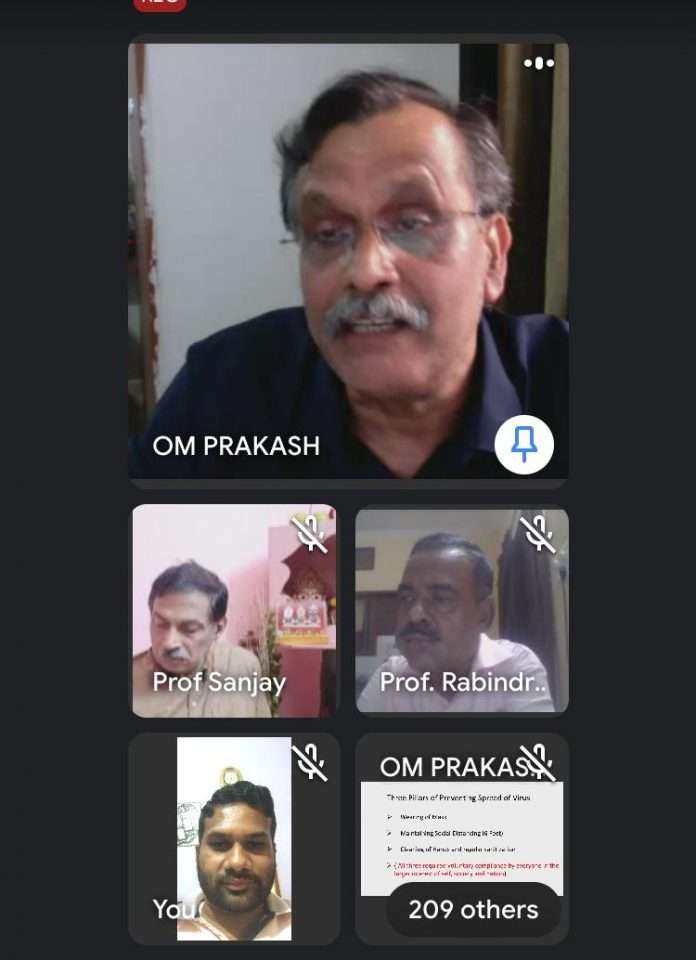Bhawanipatna, May 30: A webinar was organised by the Department of Sociology, Kalahandi University, Bhawanipatna on ‘Social Policing During Pandemic – Strategies & Challenges’ on Saturday.
The objective of the webinar was to understand the potential short- and long-term effects of disasters and public health emergencies on police organisations and personnel in particular and policing in general.
In his presentation during the webinar, Joint Commissioner of Police, Licensing Unit, Delhi Police, Dr Om Prakash Mishra provided a theoretical and historical perspective on community policing and also discussed the strategy and challenges of Covid-19 concerning community-police interaction. He explained the distinction between normal policing and distress policing, and how the Indian police are equipped with distress policing through systematic training and implementation. He said that the Covid pandemic situation has helped in bringing police and the public close to each other. He cited various examples of community policing, particularly in Delhi.
Superintendent of Police, Ganjam, Pinak Mishra described his experiences while working at ground level during the super cyclone Fani and during the current Covid-19 pandemic as well. He also expressed his view that the recent distress situation has brought the police closure to the general public.
Vice Chancellor, Kalahandi University, Prof Sanjay Kumar Satapathy in his presidential address hailed the role of police during the pandemic. He stressed the necessity of self-policing during such trying times. He opined that the discussion will definitely provide the participants with a better perspective on police and policing. He also thanked the resource persons for their cooperation with the new university.
The webinar was coordinated by HOD, Department of Sociology, Kalahandi University, Prof Himansu Charan Sadangi.
The webinar was attended by 237 participants from different institutions from across the country as well as from abroad, including personnel from armed forces and police.

